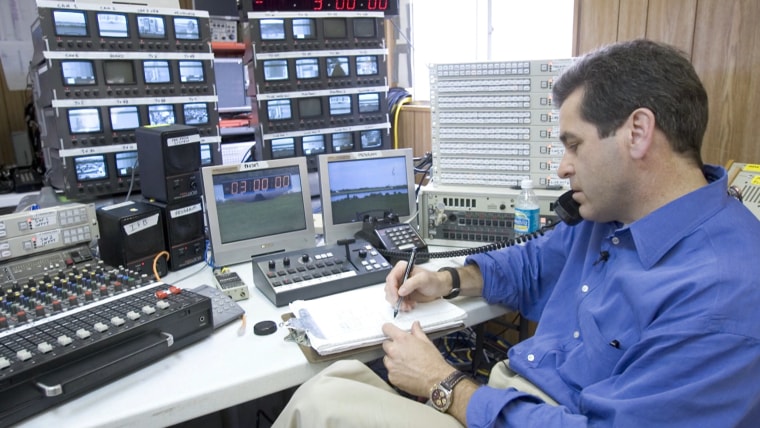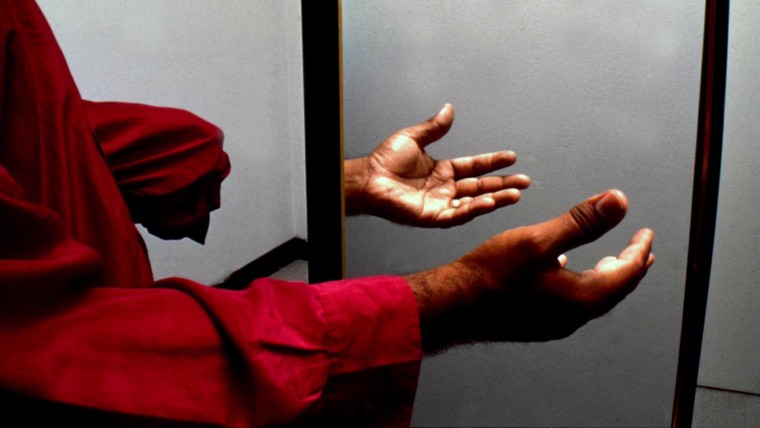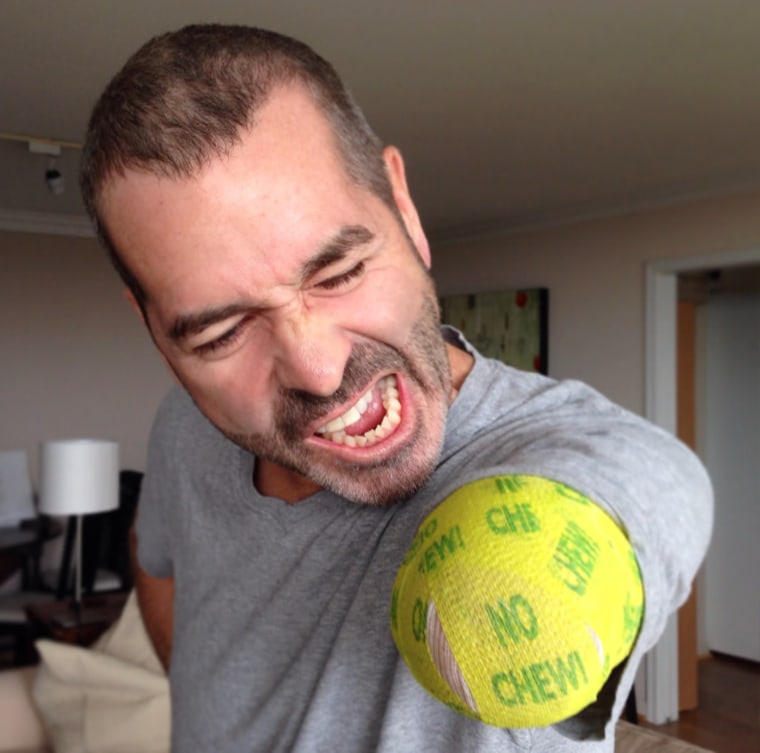PBS correspondent Miles O'Brien has spent his career reporting on scientific breakthroughs.
Now, he'll be a participant in them.
O’Brien lost much of his left arm after a seemingly minor injury suddenly put his life in jeopardy.
On Tuesday, he told Savannah Guthrie on TODAY that he dealt with the situation by immediately returning to work, wanting to get his stories out in time for the anniversary of the Japanese earthquake that led to a series of disasters, including the crippling of the Fukushima nuclear plant.
“I just dove right into work and it turned out to be a pretty good tonic for me,” he said.

The accident happened on Feb. 12 as the former CNN anchor finished up a solo reporting assignment overseas, first in Japan and then in the Philippines. He was packing up his television camera gear when one of the heavy suitcases fell off his cart and toppled onto his arm.
"When I think of all the risky things I’ve done in my life — jumping out of airplanes, flying little airplanes, scuba diving — the fact that a heavy equipment case could take my arm is mind-boggling," he said.
O'Brien wrote about the ordeal on his blog in an entry titled, “Just a Flesh Wound.” He wrote that at the time of the accident, his arm hurt, "but I wasn’t all '911' about it. It was painful and swollen but I figured it would be okay without any medical intervention. Maybe a little bit of denial?”
The fallen suitcase left a bruise but his arm became increasingly painful. He sought medical attention two days later. The doctor he saw admitted him into a local hospital for acute compartment syndrome, a condition where internal pressure builds dramatically within a muscle compartment, cutting off blood flow.
Before O’Brien underwent surgery to relieve the pressure, he was warned that amputation could be a possibility depending on circumstances during the procedure. He awoke with his arm amputated above the elbow and an intense case of phantom limb pain.
"I felt my arm as if it was there," he told Guthrie. "I thought, 'OK, I dodged that bullet' and then you look down, and it’s like, 'Uh oh, that did not go well.' That was not a good moment for sure."
O’Brien said he remained mum on the ordeal — even with his own family — in order to give himself time to grasp what happened.
“If I had told everybody and they flew in, I would have felt like I had to take care of them,” he said. “I frankly just wanted some time on my own to sort this whole thing out, try to get my head together on it, much to the chagrin of my family and friends, that I didn’t say anything. I think for me, it was the way to do it.”

O’Brien, a longtime science journalist, recently found himself using advancements to help him alleviate his phantom limb pain. He described to Guthrie about the "mirror box" therapy he used a day earlier.
“You’re tricking yourself into believing your arm is there. You use a mirror and you look at it and you try to move your phantom limb, which I feel very much,” he said. “Match that movement with the limb that’s left, and you’re brain starts thinking, ‘Oh, the arm’s there’ and that alleviates some of that phantom pain. I don’t think anybody really knows why.”
O’Brien said he has begun rehabilitation with three goals in mind: to return to riding his bike, flying planes and shooting his own video. His doctor told him none of those priorities should be a problem because of attachments now available with prostheses.
"The technology has really gone in leaps and bounds, sadly because of the wars, but that technology is something I will take advantage of as time goes on," he said. "You have to decide what you need the device, the gadget, for."

Throughout his recovery, O'Brien has remained remarkably upbeat about his ordeal and the therapy that lies ahead. He even joked with Guthrie about the little victories he's accomplished — like single-handedly opening a bottle of wine: "Important daily tasks!"
O'Brien said that the assignment that led him overseas in the first place, the third anniversary of the meltdown of the Fukushima nuclear plant, is an important one for him.
"It's an ongoing crisis there. I think we all think it’s kind of over there, but every day, hundreds of thousands of gallons of water get contaminated at that site ... and some of it is leaking into the Pacific Ocean," he said. "The whole world needs to pay attention to this and help the Japanese as they try to clean that mess up."